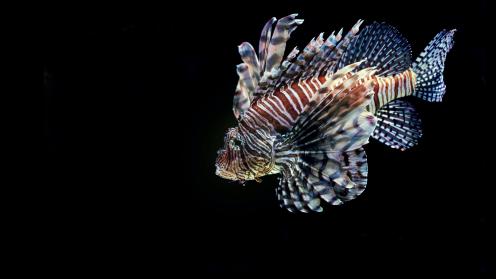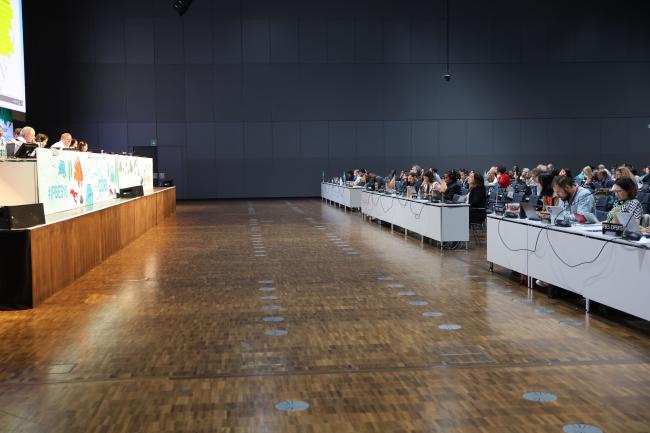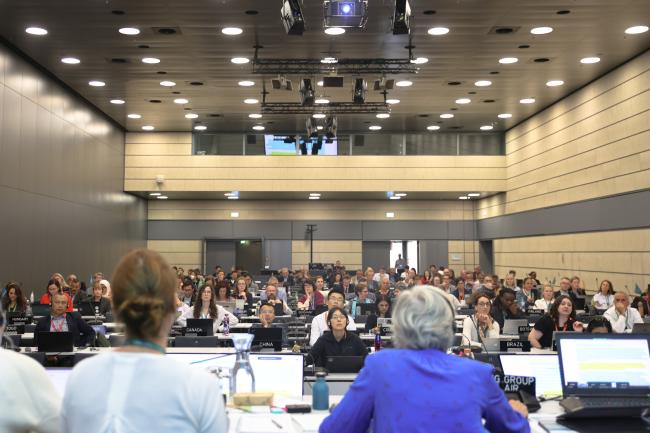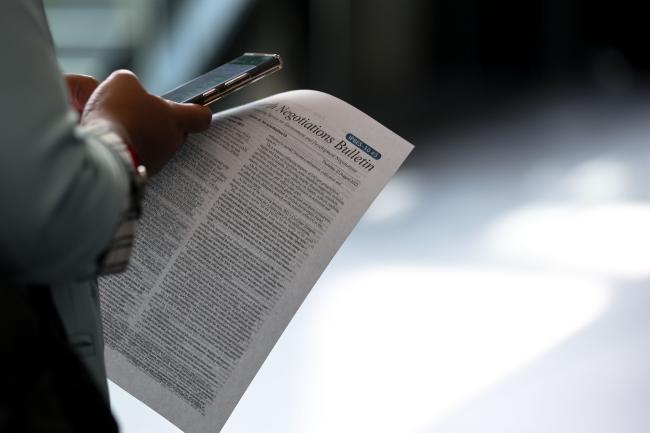With only three days to go before the end of the tenth session of the Intergovernmental Science-Policy Platform on Biodiversity and Ecosystem Services Plenary (IPBES 10), delegates began the day with a stocktaking plenary, which provided an overview of progress across agenda items.
Want to dig deeper into today's talks? Read the full Earth Negotiations Bulletin daily report.
Working Group 1 (WG 1) Co-Chair Douglas Beard reported on discussions on the summary for policymakers (SPM) of the assessment of invasive alien species (IAS) and their control. He noted that, following a slow start addressing definitional terms, the group picked up the pace addressing background messages. Over the course of the day, delegates made further progress and managed to reach agreement on a number of background messages. However, as the day progressed it became clearer that delegates would not manage to finalize agreement on the SPM before nighttime, as was originally hoped. Some delegates even started worrying that the timeline to have the SPM translated into all official languages in time for its approval on Saturday, 2 September, might become jeopardized.
During the stocktaking plenary, WG 2 Co-Chair Floyd Homer highlighted the need for further discussions on, among others:
- the institutional arrangements for the implementation of the workplans for the intersessional period 2023-2024;
- the terms of reference of IPBES task forces;
- the subject of the second fast-track assessment; and
- engagement with the Intergovernmental Panel on Climate Change (IPCC).
He also indicated the group had yet to begin discussions on improving the Platform’s effectiveness.
Delegates in WG 2 spent the rest of the day considering the initial scoping report for a methodological assessment on monitoring biodiversity and nature’s contributions to people. They continued a first read through the entire document, agreeing on as many paragraphs as they could and tabling more contentious issues for discussions at a later stage. Particularly sticky issues related to, among others:
- references to the special circumstances of developing countries;
- assessing the provisions of means of implementation for developing countries;
- assessing the benefits of a possible global biodiversity monitoring network that would enhance coordination and standardization between existing monitoring initiatives; and
- the timeline and baseline to be considered in the assessment.
“Friends of the Chair Groups” were in high demand throughout the day and evening, as both Working Group Co-Chairs invited members to work informally and come up with compromise language.
All ENB photos are free to use with attribution. For IPBES 10, please use: Photo by IISD/ENB | Anastasia Rodopoulou.
To receive free coverage of global environmental events delivered to your inbox, subscribe to the ENB Update newsletter.















































